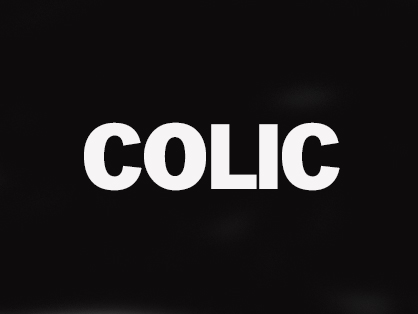As the number one cause of death in horses, colic is dreaded by horse owners. Fortunately, lifestyle management and nutrition can go a long way in preventing colic.
Colic is one of the most distressing medical emergencies a horse owner can experience; it can come on quickly, is extremely painful and potentially life threatening. Luckily, with a good understanding of your horse’s digestive system, you can help prevent colic in your horse. Below is an overview of colic, and seven simple ways to support your horse’s best digestive health.
What is Colic in Horses?
Essentially, colic is abdominal pain caused by gas, intestinal impaction, a blockage, an intestinal twist, or other underlying health reasons. It can range from mild to severe, and results from intestinal dysfunction, torsion, hernias, or ulcerations. A common trigger for colic is weather changes or major diet and lifestyle changes.
While the weather is a factor out of our control, as horse owners, we can control nutrition and lifestyle. In fact, basic nutrition and lifestyle management are a key part of any colic prevention program.
Below are seven simple ways to support your horse’s healthy digestion:
How Do You Prevent Colic?
- Review Your Horse’s Feeding Regimen – We believe this is the best way to prevent colic in your horse. Keeping your horse out on pasture grazing high fiber forages most of the day, along with feeding small amounts of grain is ideal. Feed should be tailored to your horse’s energy requirements for work, pregnancy, lactation or growth. If pasture is limited, be sure to provide a high-quality hay, split up into multiple meals throughout the day.
- Be Consistent – Any change in diet, whether it is a new batch of hay, a change in the type or amount of grain, or even changes in pasture (a very green pasture versus dryer pasture), should be made gradually. Ideally, any changes should be made slowly, over two weeks, to allow the bacteria in your horse’s GI tract to adjust.
- Ensure Clean Water is Always Available – Even mild dehydration can trigger impaction and cause colic. This factor is crucial for the overall digestive health and well-being of your horse. During the winter, ensure electric heaters are nearby and functioning properly to prevent freezing of water troughs.
- Steer Clear of Sand – The dreaded sand. Sand can be irritating to your horse’s intestinal lining, and cause colic. Be extra careful to not let your horse overgraze on pastures rich in sandy soil and avoid feeding hay or grain on the ground.
- Deworm According to a Rotational Deworming Schedule – or as indicated by your veterinarian.
- Consider Fiber & Probiotics – Pre and probiotics are essential to the health of your horse’s GI system. These “good bugs” ensure the proper breakdown of your horse’s food and can help maximize nutrient absorption. An added source of high-quality fiber, such as psyllium, can be of benefit to colic-prone horses by promoting optimate hindgut performance. Feed your horse a veterinarian-recommended digestive aid, like Assure Guard Gold – The Ultimate Digestive Aid, that contains both live microbes and psyllium to help prevent ulcers, diarrhea, and support overall digestive health.
- Get Peace of Mind with Colic Assurance – If your horse has recurring colic, consider joining a reputable colic reimbursement program. Arenus’ Colic Assurance Program provides peace of mind, along with medical and surgical reimbursements, if eligible. Additionally, the Colic Assurance Program offers up to $10,000 in lifetime reimbursements and is relied upon by many horse owners. Learn more about the program by visiting Arenus.com.
According to the AAEP, colic remains the number one killer of horses. As scary as that statistic is, colic is not impossible to prevent or treat. With a good preventative plan in place, you can minimize the chance for digestive distress in your horse.
This June, in honor of Equine Colic Awareness Month, Arenus Animal Health is offering a sign-up period for an educational webinar for veterinarian professionals titled “Colic Woes & Digestive Foes: Veterinary Management of Leaky Gut, Recurrent Colic and Chronic Stress in Horses” set for July 12, 2018 at 5pm MST. Webinar attendees will enjoy an information-packed free gift when they register for this exciting event.
Learn more about the full line of Arenus Animal Health products by visiting Arenus.com. Currently, site visitors can enjoy a free 8 oz. of Sore No-More Liniment when they purchase select Benefab by Sore No-More products. Visit Arenus.com to place your risk-free order today.











